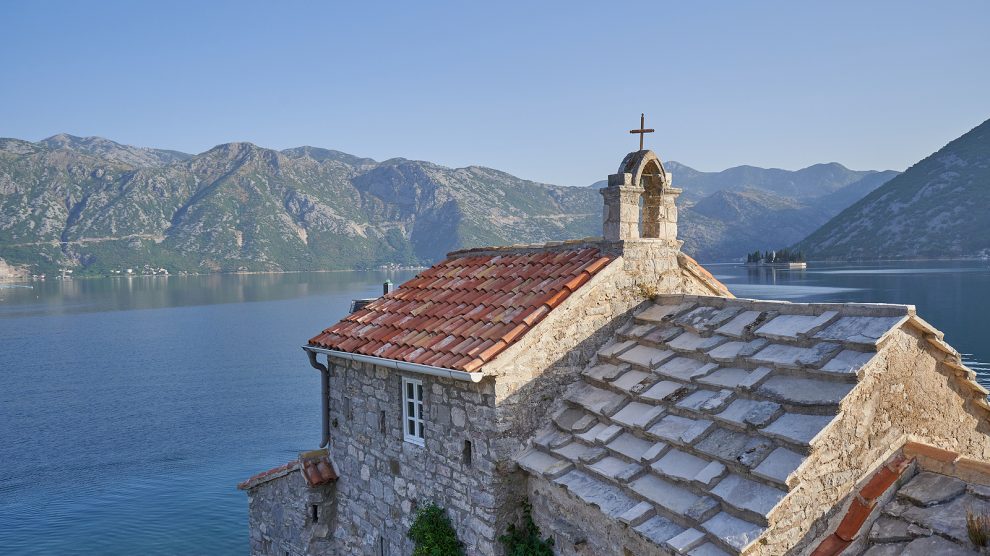Presidential elections in Montenegro this weekend will decide the fate of long-time ruler and current president Milo Đukanović.
On March 19, Montenegro will hold the first round of its presidential election. If no candidate receives a majority, a second round run-off between the leading two candidates will be held on April 2.
The presidency of Montenegro is a fixed, five-year term and may only be held twice. Incumbent president Milo Đukanović began his current term in 2018 but previously served as president from 1998 to 2002, while Montenegro was a constituent republic of the Federal Republic of Yugoslavia. Because his first term was prior to the restoration of Montenegrin independence, Đukanović is eligible to run for another term.
- For most of Central and Eastern Europe, 2023 will likely see a slowdown in growth
- Montenegro’s problematic relationship with the Serbian Orthodox church
- Introducing the European Political Community
Đukanović also served as prime minister from 1991 to 1998, 2003 to 2006, 2008 to 2010, and 2012 to 2016. He leads the Democratic Party of Socialists (DPS) of Montenegro, the successor to the ruling Communist party of Yugoslavia. The DPS ruled Montenegro – which joined NATO in 2017 and has been a candidate to join the European Union (EU) since 2010 – either alone or in a coalition for almost three decades from 1991 until 2020.
Three decades in power
When Đukanović’s political career began with his rise to the position of prime minister at age 29, he closely allied himself with Serbia’s Slobodan Milošević, and supported the siege and bombardment of Dubrovnik. It was only in 1998 that Đukanović refashioned himself as a pro-Western reformer and began to distance himself from Milošević.
Montenegro took in ethnic Albanian refugees from Kosovo. Under Đukanović, Montenegro adopted the Deutsche Mark as its currency before unilaterally adopting the euro in 2002 despite having no formal agreements with eurozone institutions. Đukanović began to champion Montenegrin independence from the union state with Serbia, which was realised in a 2006 referendum.
Đukanović supported Montenegro joining both the EU and NATO. In 2016, amidst an ongoing domestic political crisis and on the eve of Montenegro joining NATO, there was an alleged Russian-backed coup attempt against Đukanović involving Russian and Serbian citizens and Montenegrin opposition politicians. A number of these individuals were convicted in 2019, but the verdict was overturned in 2021 by an appeals court that said the earlier trial was held in a manner that violated criminal law.
Organised crime and corruption have remained issues in Montenegro throughout Đukanović’s decades of leadership. In 2015, the Organised Crime and Corruption Reporting Project named Đukanović as their “Person of the Year in Organised Crime”. Pandora Papers leaks in 2021 revealed Đukanović and his son have offshore accounts via trusts in the British Virgin Islands.
Milo Đukanović used his diplomatic passport to open the account.
Recent crisis
Freedom House classified Montenegro as a “semi-consolidated democracy” that was “partly free” until 2019, when it downgraded the country to the classification of “hybrid regime”. Freedom House notes that Đukanović’s success in the “free but not fair” 2018 election was aided by his access to state resources during the campaign and that he refused to debate any other candidates. Less than two weeks before the 2018 election, a Montenegrin investigative journalist was targeted with a car bomb, and a month later, another investigative journalist covering corruption was shot outside her home by unknown assailants.
After protests over a controversial law transferring ownership of pre-1918 buildings and real estate from the Serbian Orthodox Church to the Montenegrin state, the 2020 parliamentary elections produced a political earthquake. With little independent media and access to state resources, the governing DPS gained the most votes of any one party. However, three opposition coalitions from across the political spectrum united to oust it.
Internal disagreements between pro-Serb and pro-Western factions of the new government led to its ouster in a no-confidence vote in February 2022. A new, more strongly pro-Western government was formed in April only to collapse in August after its prime minister signed a controversial agreement to resolve ongoing disputes with the Serbian Orthodox Church.
Đukanović rejected the proposed prime minister-designate, Miodrag Lekić, in September over procedural errors, but parliament passed a law that would allow it to approve Lekić as prime minister if the president failed to do so. The United States and the European Union appealed to the parliamentary majority not to try to form a government based on the amended law because it would have questionable legitimacy.
On March 16, Đukanović issued a decree to dissolve parliament, after a legal deadline expired for Lekić to form a government. A new parliament will be elected on June 11.

Toughest challenge yet
Whether or not Đukanović will still be president by then is a moot point. He remains the clear favourite, although six candidates are challenging him in the presidential election.
Jakov Milatović, a young economist from the increasingly popular Europe Now Movement, is seen as Đukanović’s main rival, while Andrija Mandić, the candidate of the pro-Russian Democratic Front, also has chance of at least making a run-off. A lack of reliable opinion polls makes predicting the outcome difficult.
Đukanović has throughout the campaign attempted to present himself as the stability candidate. Last month he said that, “Montenegro is totally paralysed on its European path and this agony must be stopped as soon as possible”, suggesting that only he can unblock the political impasse.
An impasse – his opponents have not been slow to point out – that he in large part brought about.
Unlike many news and information platforms, Emerging Europe is free to read, and always will be. There is no paywall here. We are independent, not affiliated with nor representing any political party or business organisation. We want the very best for emerging Europe, nothing more, nothing less. Your support will help us continue to spread the word about this amazing region.
You can contribute here. Thank you.



Add Comment